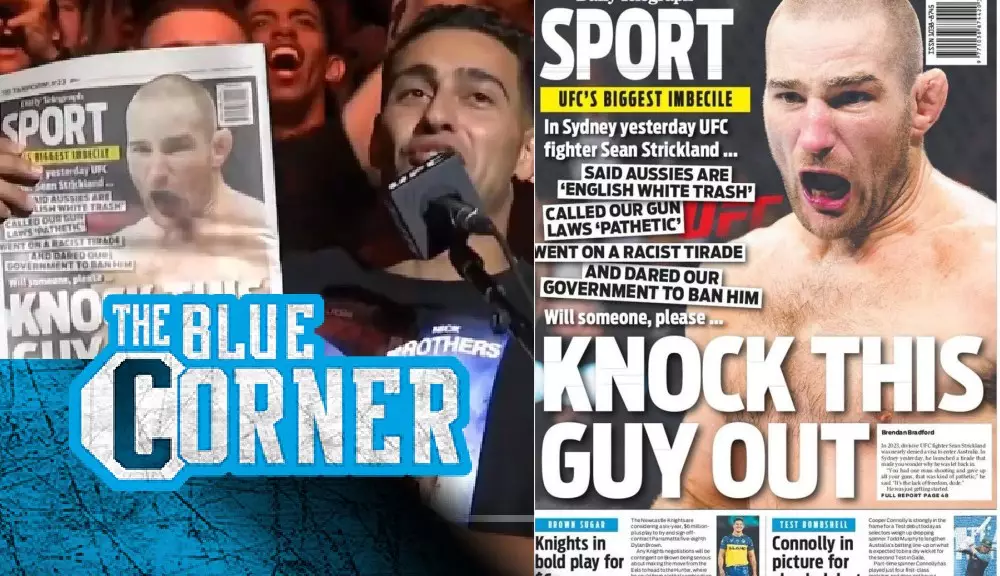As UFC 312 approaches, a cloud of controversy looms over the event, primarily thanks to the outspoken behavior of Sean Strickland. The middleweight fighter, known for his candid and often abrasive comments, is slated to challenge Dricus Du Plessis for the championship title in a rematch set to take place at the Qudos Bank Arena in Sydney, Australia. While Strickland’s brash persona has historically drawn attention, his latest remarks have crossed a line that has ignited outrage in the host nation.
Strickland, who boasts a professional mixed martial arts record of 29 wins and 6 losses, has always been unapologetically vocal about his opinions on topics extending far beyond the confines of the octagon. This time, however, his rhetoric appears to have backfired spectacularly, culminating in a front-page feature in The Daily Telegraph branding him as “the UFC’s biggest imbecile.” The harsh label is emblematic of how his comments have resonated poorly with the Australian public, leaving many questioning the appropriateness of his statements in an international setting.
Strickland’s Comments: A Recipe for Backlash
During a pre-fight press conference, Strickland was asked about his sensationalization on the front cover of the local newspaper. His response was nothing less than incendiary. “Bunch of communists, guys,” he retorted, emphasizing his views on freedom of speech and firearms while condemning the media as “communists” for what he perceived as their attempts to malign his character. The fighter’s brash dismissal of the local culture and political climate left many in attendance—both fans and members of the media—stunned.
Strickland’s habit of speaking his mind has, in previous instances, fetched him both fans and critics alike. While some appreciate the authenticity, others argue that his careless disregard for cultural sensitivities is unprofessional, especially when representing a brand as prominent as the UFC. With Australia being known for its stark political differences compared to the United States, his comments have been perceived as an affront, further alienating him from potential supporters in the region.
The Broader Implications of Brash Behavior
The fallout from Strickland’s comments serves as a reminder of the delicate balance athletes must maintain when expressing their viewpoints, especially in an era where social media amplifies every statement. The backlash not only represents a challenge for Strickland as he prepares for a pivotal fight but also poses potential ramifications for the UFC regarding public perception and international relations.
As UFC President Dana White often suggests, fighters like Strickland should understand the broader impact their words can have. The fight game thrives on personality, but it also requires a degree of decorum, particularly when engaging with fans across various cultures. As the event approaches, the question remains whether Strickland can parlay the controversy into a galvanizing performance in the octagon or if the distraction will impede his chances at reclaiming the title.
In the landscape of mixed martial arts, Strickland’s experience underscores the lesson that athletes bear a responsibility—both to themselves and to their sport—to navigate their platforms judiciously. As UFC 312 unfolds, one can only hope that the focus will shift back to the fighters’ skills and the art of combat rather than the distractions of controversial remarks.

